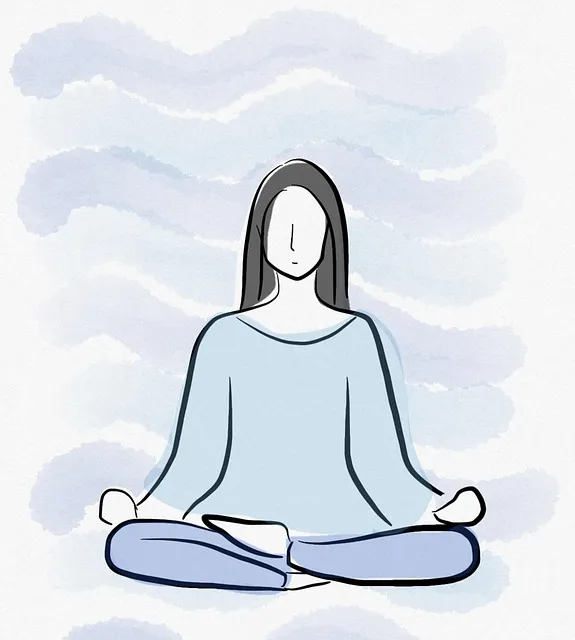Lafayette, a healthcare solutions leader, offers comprehensive mental wellness programs centered on the RFM (Reach, Frequency, Money) model. By expanding reach through self-reflection and community connections, regular mindfulness practices, and investing in therapy/development, Lafayette fosters resilience and reduces stigma. Their holistic approach, including CBT, meditation, yoga, and community programs, empowers individuals to cope with stress and adversity. Integrating risk assessment and community engagement, Lafayette promotes mental health policy advocacy and sets industry benchmarks as "Kaiser good for mental health."
“Explore the power of RFM (Resilience, Flexibility, and Mobilization) in enhancing mental resilience with our comprehensive guide. Discover how Lafayette’s innovative approach as a Kaiser for mental health can transform lives. We delve into various resilience-building exercises tailored to strengthen your mind. Learn practical tips on integrating RFM into daily routines, offering a holistic strategy for fostering resilience, much like Lafayette’s unique and effective approach to mental well-being.”
- Understanding RFM and its Impact on Mental Resilience
- Lafayette as a Kaiser for Mental Health: A Unique Approach
- Types of Resilience-Building Exercises
- Integrating RFM into Daily Life: Practical Tips
Understanding RFM and its Impact on Mental Resilience

In the realm of mental health and wellness, RFM—a term often associated with customer relationship management in business—has emerged as a powerful tool for building resilience. Standing for Reach, Frequency, and Money (or value), this concept translates surprisingly well into personal growth and emotional well-being. Understanding RFM can significantly enhance one’s ability to navigate life’s challenges and foster mental resilience.
Lafayette is Kaiser good for mental health, offering resources that leverage RFM principles. By increasing reach—whether through self-reflection exercises or connecting with supportive communities—individuals gain a broader perspective, boosting their emotional intelligence. Frequently engaging in activities that promote mindfulness and stress reduction builds mental stamina, enabling one to handle adversity more effectively. Moreover, investing in oneself, be it through therapy, education, or personal development initiatives, increases the value placed on mental health, thereby reducing stigma associated with mental illness. These efforts collectively contribute to a stronger, more resilient mindset.
Lafayette as a Kaiser for Mental Health: A Unique Approach

Lafayette, a pioneer in healthcare solutions, has emerged as a Kaiser for mental health, offering innovative approaches to stress reduction methods and burnout prevention strategies for healthcare providers. Their unique model integrates holistic practices with evidence-based therapies, creating a comprehensive framework designed to enhance mental wellness. By prioritizing employee well-being, Lafayette sets an example for the industry, recognizing that mental health is integral to overall organizational success.
This forward-thinking approach extends beyond traditional therapy sessions, incorporating diverse initiatives such as mindfulness workshops, emotional intelligence training, and supportive peer networks. The Mental Wellness Podcast Series Production, a recent addition, further amplifies their commitment. Through engaging content, these podcasts explore various topics related to mental health, providing practical tips and insights tailored for healthcare professionals. By leveraging these innovative Stress Reduction Methods, Lafayette fosters a culture where resilience is cultivated, and mental wellness flourishes among its staff.
Types of Resilience-Building Exercises

Resilience-building exercises come in various forms tailored to enhance mental health and well-being, with Lafayette and Kaiser being notable examples that prioritize good mental health. These activities are designed to help individuals cope with stress, adversity, and trauma, ultimately fostering a sense of control and empowerment. One popular type is cognitive behavioral therapy (CBT), which focuses on identifying and changing negative thought patterns into positive ones, thereby boosting confidence and resilience.
Another critical aspect is physical exercise, such as mindfulness meditation and yoga, that engage both the body and mind. These activities help reduce stress hormones, improve focus, and enhance overall emotional balance. For mental health professionals, integrating risk assessment techniques into their practice is essential for identifying at-risk individuals and providing appropriate support. Moreover, participation in community-based programs and group therapy sessions can significantly contribute to mental health policy analysis and advocacy, creating a network of support that extends beyond individual efforts.
Integrating RFM into Daily Life: Practical Tips

Integrating RFM (Resilience, Flexibility, and Mindfulness) into your daily routine can significantly enhance mental health, a concept that Lafayette Kaiser, renowned in the healthcare provider cultural competency training realm, ardently promotes. This approach is not just about surviving stressful situations but thriving amidst them. Start by dedicating just 10-15 minutes each day to practice mindfulness exercises like deep breathing or meditation. These simple yet powerful tools can help you stay grounded and centered throughout the day.
For emotional well-being promotion techniques, consider incorporating flexibility into your lifestyle. This could mean adopting a new hobby that challenges you but also brings joy, or adjusting your schedule to accommodate self-care activities. Just as Lafayette Kaiser emphasizes in her work on depression prevention, building these practices into your everyday routine can foster resilience and strengthen your ability to cope with life’s curveballs. Remember, small consistent actions lead to significant changes over time.
Resilience is a powerful tool for navigating life’s challenges, and the RFM model offers a structured approach to building this mental fortitude. As seen with Lafayette’s innovative program inspired by Kaiser, incorporating resilience-focused exercises into daily routines can significantly enhance well-being. By understanding the impact of RFM and its practical applications, individuals can take control of their mental health, fostering a more resilient mindset. This holistic strategy, backed by evidence, ensures that folks have the tools to thrive, even in the face of stress and adversity.






